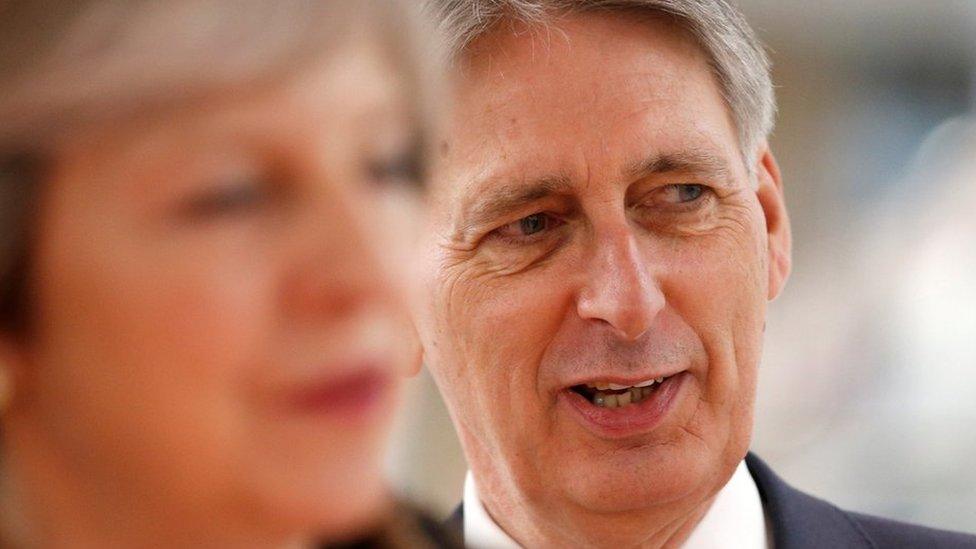Budget 2017: Unison Cymru Wales urges public sector pay rise
- Published
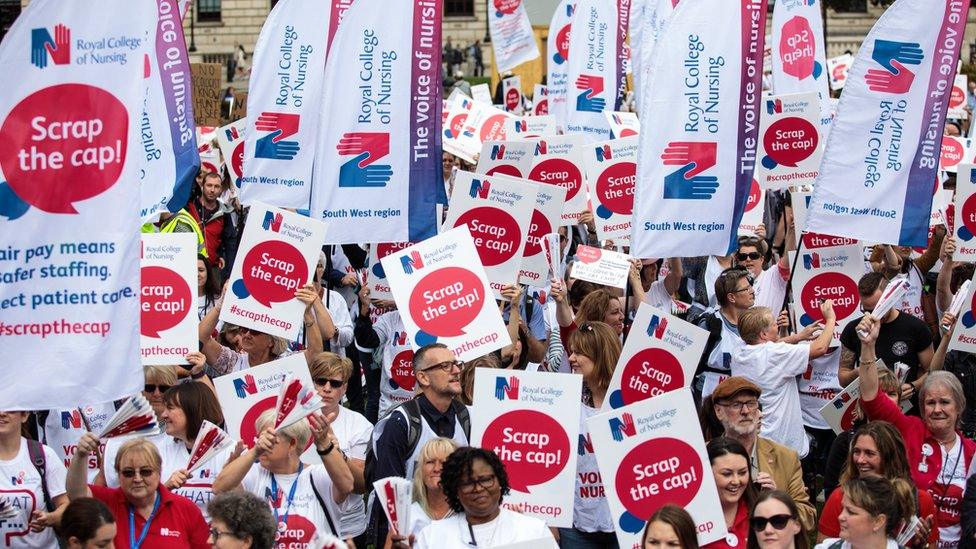
There are 6% more public sector workers in Wales than the UK average
Public sector workers had hoped that Chancellor Philip Hammond's Budget would bring an end to their pay freeze that has been in place since in 2011.
Unison in Wales said public sector workers have lost a fifth of their income in real terms since the recession.
Wales has proportionately more public sector workers than the UK average.
Mr Hammond presented his Autumn Budget on Wednesday.
But he promised that the Treasury would pay for any increase in pay for nurses, when the independent review reaches its conclusions in the Spring.
The Welsh Government would expect to get extra money to fund that here.
But for the wider public sector, there was no lifting of the cap.
Initially, a pay freeze affected public sector workers on salaries of more than £21,000 but since 2013, most annual public sector pay rises have been limited to an average of 1% a year.
There are 390,800 public sector workers in Wales and, as BBC Wales determined from a Freedom of Information request in October, 23,200 public sector workers earn less than the so-called real living wage of £8.45 an hour.
Dominic MacAskill, head of local government at Unison Cymru Wales, said: "Public sector workers have suffered a pay freeze or a pay cap for the last seven years.
"In terms of real income, the money in their pocket has been reduced by 21% over that period - a fifth of their income has gone."

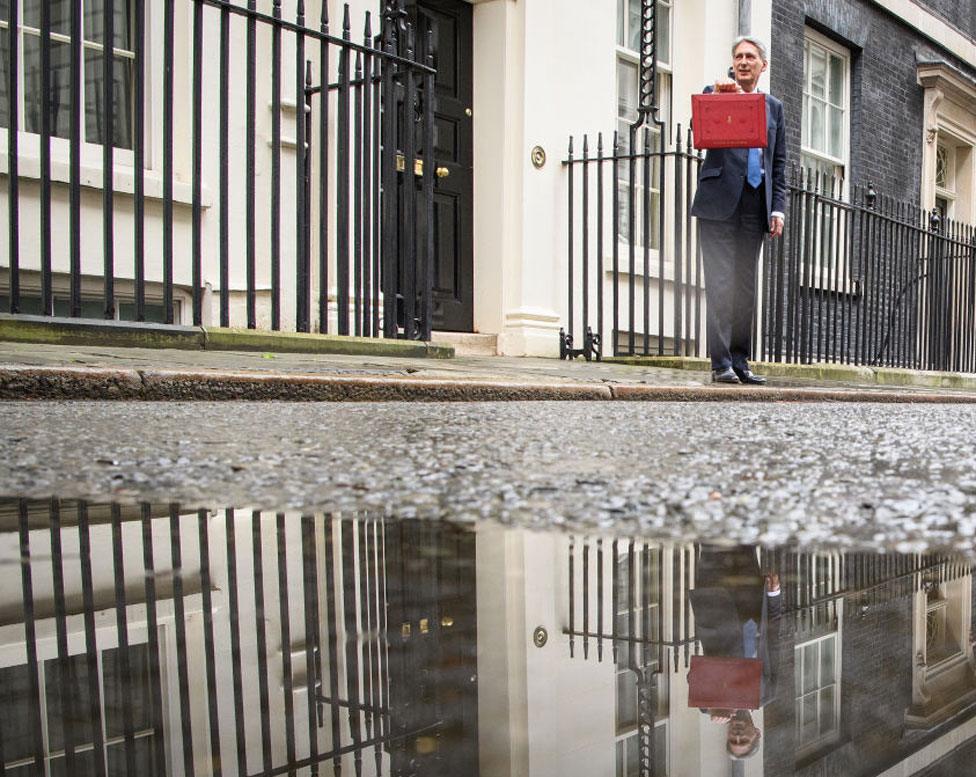
Philip Hammond in Downing Street

Mr MacAskill said: "A lot of our members have had to make difficult choices around their family budgets, housing and food costs. We're hearing a lot more stories of members having to go to food banks."
He said public sector workers seem to have suffered more than private sector workers.
The union had said even a 5% rise would not go far enough but would have been "a clear statement of intent" to redress the balance.
It argued that investment was needed to help the economy grow and that pay rises would in themselves help public coffers because more money would be collected through income tax, National Insurance and VAT.
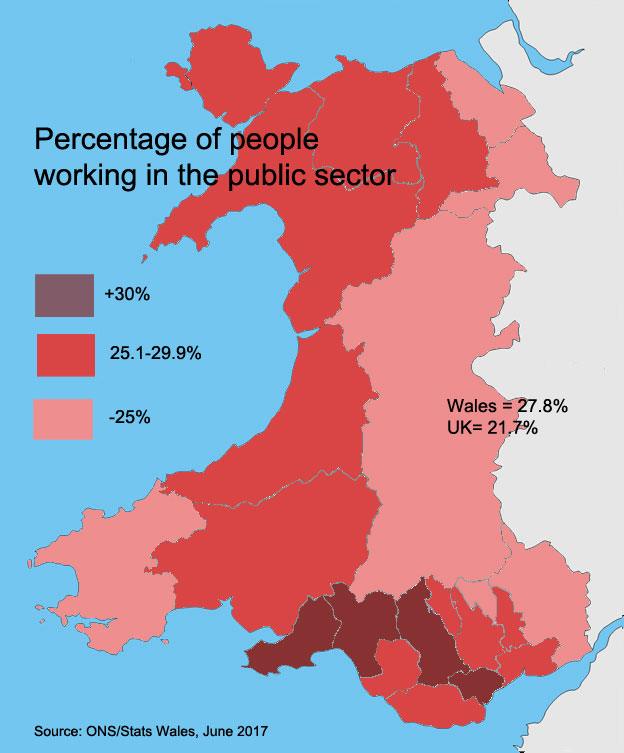
This shows the concentration of public sector workers across Wales
Just under 28% of the Welsh workforce works in the public sector, a proportion that has only dropped slightly since the recession.
The highest proportion is nearly 32% in Rhondda Cynon Taff; the lowest are slightly more than 20% in Powys and Flintshire.
Figures from the Office for National Statistics also showed that for most of the time since 2011, prices have been rising faster than public sector pay and so those employees have in effect been experiencing a cut in living standards.
Growth in private sector pay fell significantly between 2008 and 2009 as the financial crisis hit, while growth in public sector pay continued.
But since 2013 the private sector has recovered and risen considerably more than public sector pay.
The Budget included a rise in the National Living Wage from April 2018 by 4.4%, from £7.50 an hour to £7.83.
Plaid Cymru said Wales has been hit harder than England and Scotland due to "Westminster's failed policy of austerity".
Before Mr Hammond's speech, party treasury spokesman Jonathan Edwards MP said: "The chancellor needs to move to a policy of investment in all four countries, not just his own.
"Major infrastructure is the key to driving up productivity and wages, including in our roads, railways and in our digital infrastructure."
Welsh Liberal Democrat leader Jane Dodds said: "As one of the most deprived regions of the UK and even the EU, Wales has suffered more than most.
"The continued rollout of Universal Credit will worsen child poverty and increase homelessness, whilst the public sector pay gap has left public sector workers who devote their lives to saving ours reliant on food banks to survive."
- Published22 November 2017
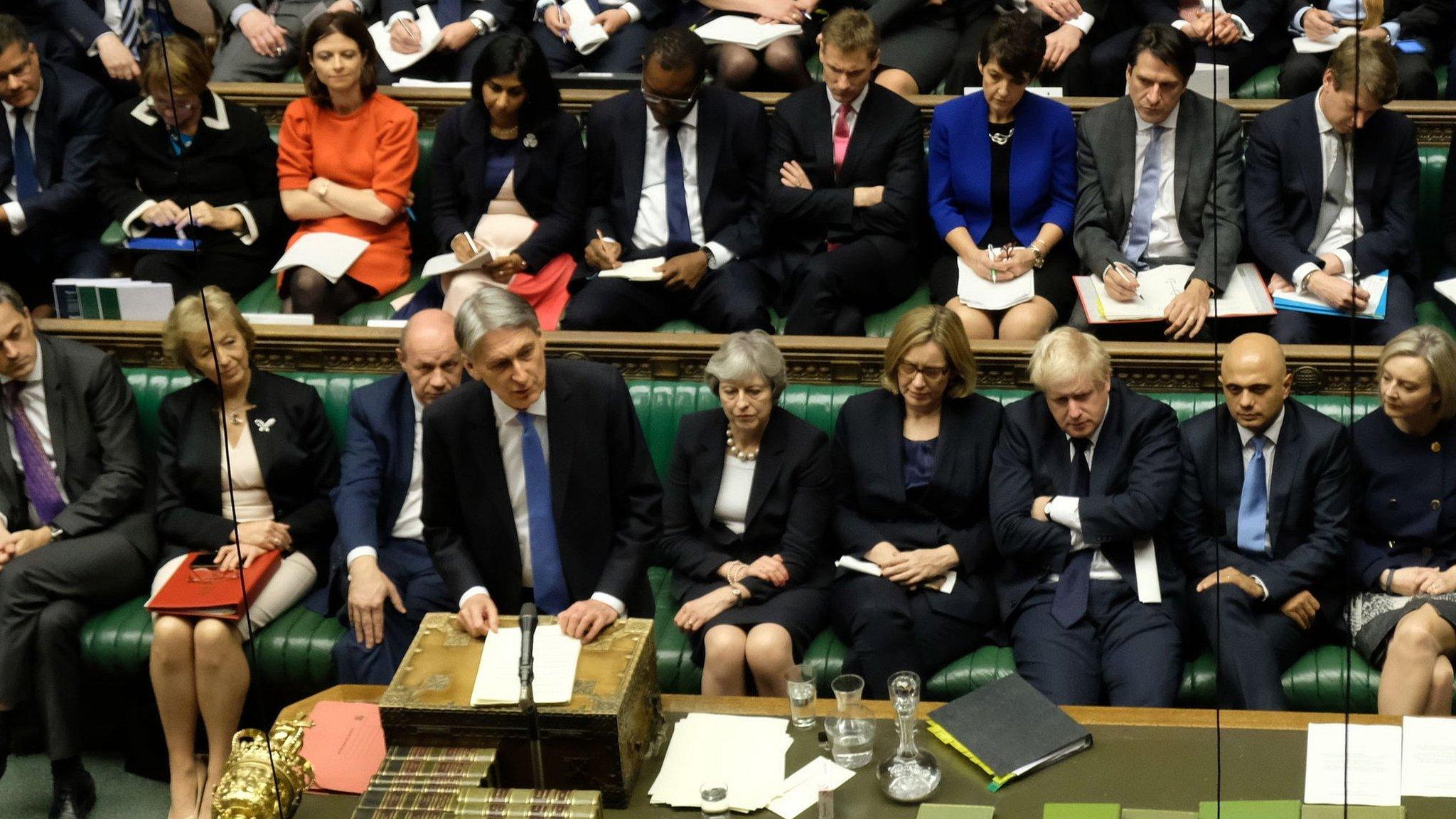
- Published21 November 2017
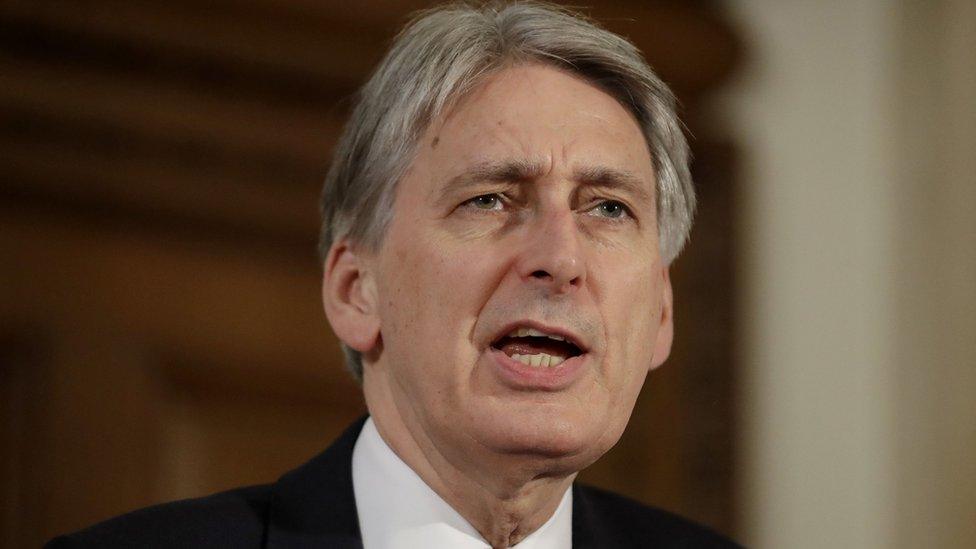
- Published13 September 2017
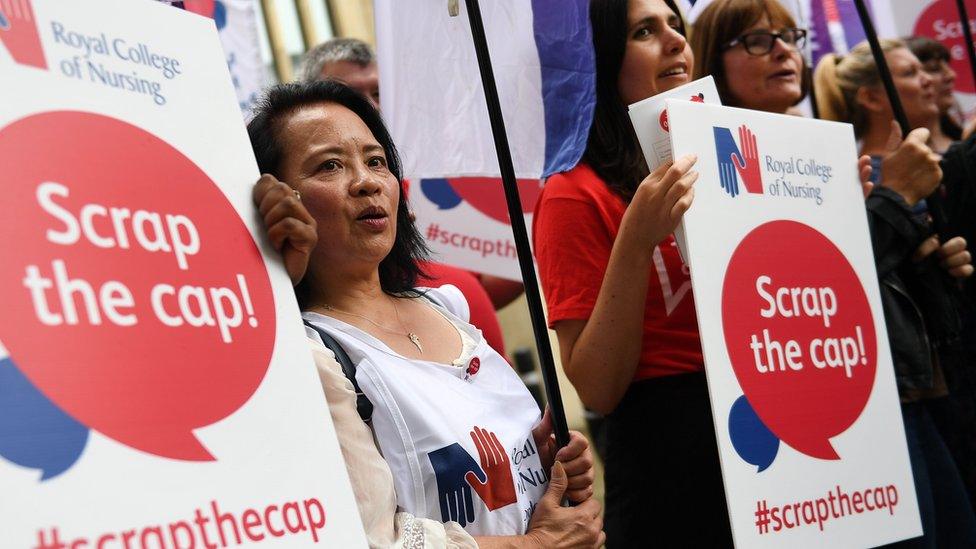
- Published4 July 2017

- Published21 November 2017
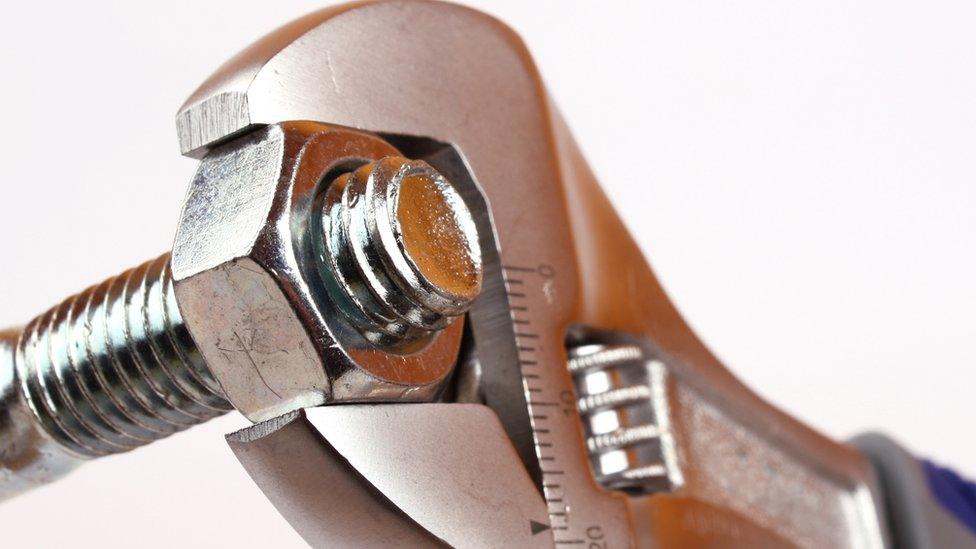
- Published21 November 2017
